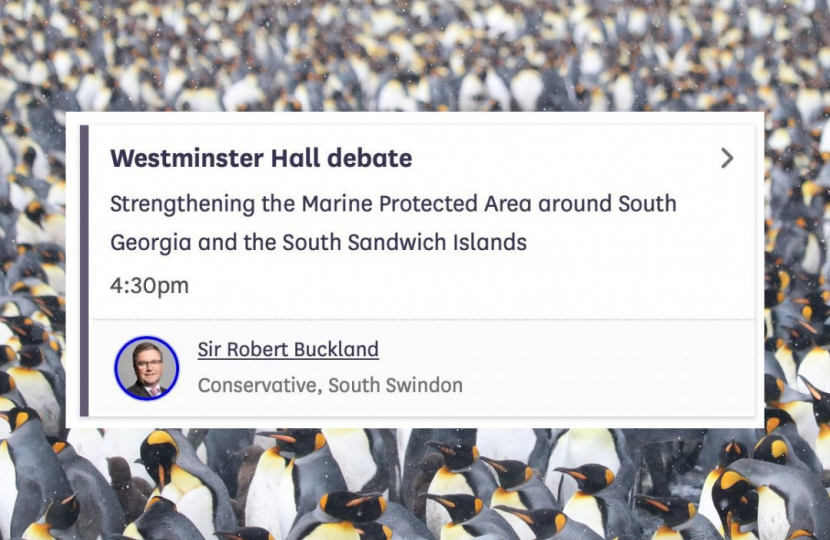
Thanks to our overseas territories, there are thousands of weird and wonderful animals most people don’t even realise are British. From the critically endangered Mountain Chicken Frog, to the world’s smallest flightless bird, the Inaccessible Island Rail, British wildlife is beautifully diverse. The UK is even responsible for one third of the world’s penguins.
With such an abundance of British wildlife, we have a responsibility to do our part in protecting global biodiversity. And that is exactly what successive conservative governments have done. In particular, through our Blue Belt programme which has led to the protection of over 4.3 million square kilometres of ocean. These protected areas, which are reviewed every five years, protect the waters around important Overseas Territories such as South Georgia and the South Sandwich Islands (SGSSI).
Home to millions of penguins, half the world’s elephant seals and key populations of albatross, these islands are of significant global importance. All these species share a reliance on the sea, and it’s vital that the oceans of these territories are as healthy as possible if we want these species to survive and thrive. However, these waters are increasingly under threat from industrial fishing. As this threat increases, so too does the need to protect more of the ocean from it.
The Marine Protected Area around SGSSI fully protects 23 per cent of the territory’s waters. But there is more for the government to do and this year, with the Blue Belt being reviewed for South Georgia and the South Sandwich Islands, the government has a huge opportunity to further protect Great British wildlife.
That’s why I’m urging the government to fully protect the 400,000 square kilometres of waters around the South Sandwich Islands. And given the relatively small amount of fishing that currently happens in these waters, it is the perfect location for a large no-take zone of this kind.
Along with other parliamentary supporters of the Conservative Environment Network, I’m hoping that the government makes the most of this opportunity to strengthen protections and step up our commitment to subantarctic conservation. South Georgia was once the site of an industrial slaughter of 175,000 whales in the first half of the 20th century, but now whales are returning to its waters in ever-increasing numbers. It is a great success story.
But parts of its ecosystem are still struggling. Albatross numbers, for example, are declining year-on-year, and scientists blame this on encounters with fishing equipment. Only a few thousands pairs of Albatross are found in the territory, and this worrying decline should prompt the government to take action. 30 marine biologists have urged the government to strengthen the MPA, and I hope the government acts upon these calls.
The British Overseas Territories hold 90% of the UK’s biodiversity. They are crucial in our global conservation efforts, and I urge the government to continue its world-leading work by strengthening the protections around South Georgia, ending all fishing around the South Sandwich Islands and showing that the UK is not just a world leader, but is the world leader in ocean conservation.




